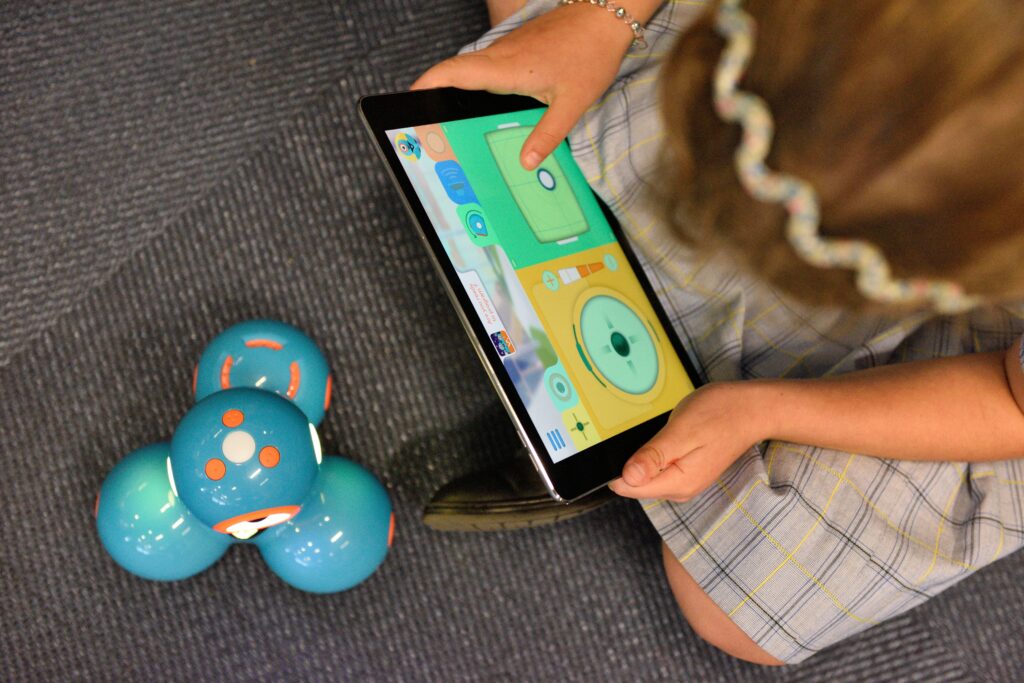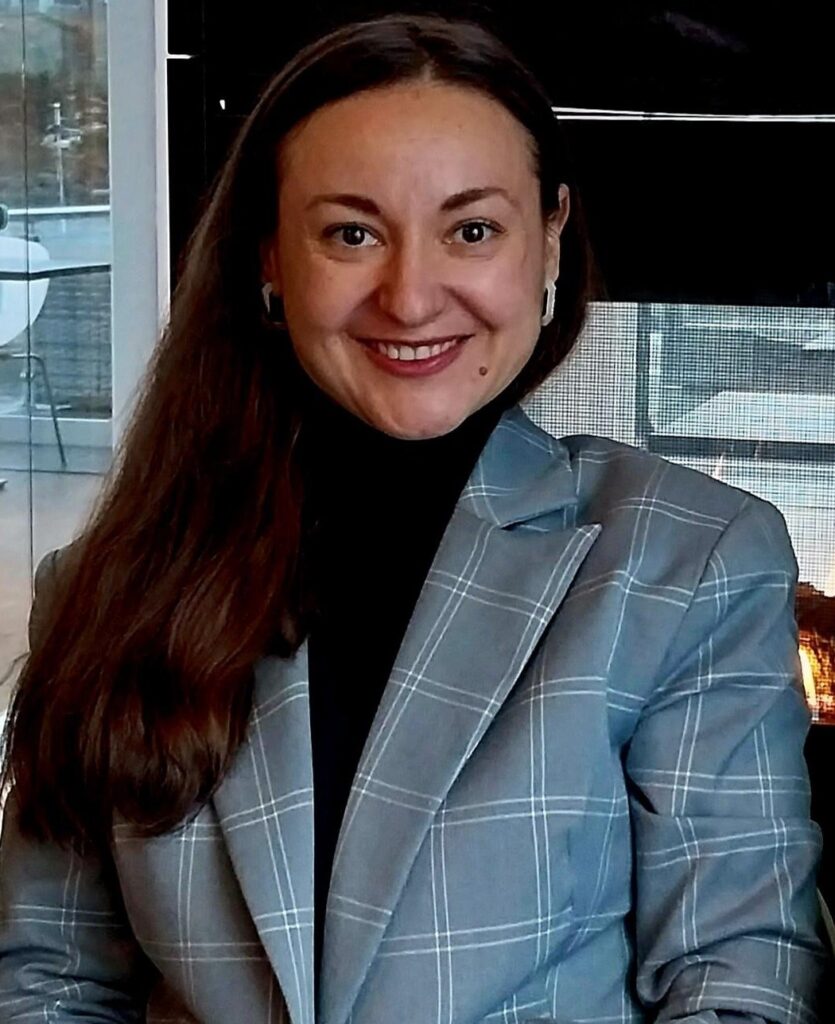EECERA Conference 2025 – Guest Blog # 14: Digitalization in Kindergarten
Posted 12th August 2025
One of a series of short blog posts by presenters who will be sharing their work at the upcoming annual conference in Bratislava, Slovakia. Any views expressed in this post are those of the author(s) and do not necessarily reflect the official stance of their affiliated institution or EECERA.
Digital Tools as a Supplement in Kindergarten
By Svitlana Holovchuk–NLA University College, Norway

Digitalization in kindergarten – controversies and perspectives
The use of digital tools in kindergartens is a controversial issue. Growing up in a mediatized culture and digital childhood, where digital tools are integrated into everyday life, requires reflection and discussion (Dahle & Meyer, 2024, p. 20). As the Strategy for Digital Competence and Infrastructure in Kindergartens and Schools (2023) points out: “We will learn to express ourselves, create and be creative with help of both physical and digital tools.” (p. 3). The Frameworkplan for Kindergartens (2017) highlights that “digital practices in kindergarten shall encourage the children to play, be creative and learn” (p. 44). It is also pointed that “digital tools must be used with care and not become a dominant practice.” (p. 44) and the kindergarten staff should “exercise sound digital judgement with regard to searching for information, be conscious of copyright issues, critically analyse sources and safeguard the children’s privacy” (p. 45). However, there is a significant gap beetween normative document guidelines and how digital tools should be used in daily kindergarten practices, as well as parent’s attitudes and misunderstandings. How can we manage the above-mentioned challenges?
Professional Digital Competence and Digital Judgment
To address different challenges related to the use of digital tools in kindergarten, professional digital competences are crucial. Development of professional digital competence should begin step by step, and part of this process should involve practicing new skills together with children (Gjesdal et.al, 2024, p. 81). To be “digitally competent” means to have technical, pedagogical and ethical understanding, as well as the ability to analyse when digital tools can be used with children (Dardanou, et.al., 2021, p. 36). In addition, there is limited research-based knowledge related to what kind of digital tools can be effectively used in activities with children and promote their ethical understanding of digital media (Strategy, 2023, p. 14).
Creativity and Inclusion
Digital tools as support can promote development of children’s 21st century skills, including critical thinking, communication and collaboration (Holovchuk et al., 2024), as well as agency and creativity (Jermstad,2025, p. 19). For instance, children with kindergarten staff can create together a digital storytelling project. Digital aids may assist and can be valuable aids for inclusion in kindergarten, especially for multicultural children. For example, it can provide multilingual and visual support, diversity of interactive activities for children’s participation, and collaboration with parents.
Concluding remarks
As previously mentioned, digital tools can be valuable resources for fostering children᾿s creativity and inclusion. However, it is crucial to have a limit for technology in early childhood. Intensive use of digital tools may reduce social interaction and have a negative effect on both physical and mental health. Play, exploration, social interaction and relationship building are key elements for child’s formation and well-being. Therefore, digital technology in kindergarten should be used as a “supplement – not a replacement”.
References
Dahle, M.S. & Meyer, G.S. (2024). Digital danning i barnehage, skole, hjem og fritid – en innledning. I M.S. Dahle & G.S. Meyer (Red.), Danning i digitale praksiser. Digital danning i barnehage, skole, hjem og fritid (s. 19–28). Fagbokforlaget. DOI: https://doi.org/10.55669/oa380302
Dardanou, M., Dybdal Simensen, E. & Solberg Mossin, M. (2021). Barnehagens digitale arenaer. Universitetsforlaget.
Gjesdal, B.E., Eikhaug, R. & Holovchuk, S. (2024). Suksesskriterier og barrierer for bruk av digitale verktøy i barnehagen. I A.Ø. Halsnes & L.K. Ryland (Red.). Hånd i hånd i barnehagelærerutdanningen: Der lek, fag og praksis møtes (s. 75–90). Fagbokforlaget. DOI: https://doi.org/10.55669/oa291005
Holovchuk, S., Jermstad, L. K., & Jokstad, G. S. (2024). Student creativity and collaboration during digital learning: Glocal theoretical perspective. I B. E. H. Nordheim & S. Weber (Red.), Glocal theological education: Teaching and learning theology in the light of crisis (s. 128–141). Wipf and Stock Publishers.
Jermstad, L. K. (2025). Building History: Project-Based Pedagogy for Cultural Heritage in Early Childhood Education. Journal of Early Childhood Education Research. 1 – 23. https://doi.org/10.58955/jecer.156299
Ministry of Education and Research. (2017). Rammeplan for barnehagen. Forskrift om rammeplan for barnehagens innhold og oppgaver [Framework Plan for kindergartens]. https://www.udir.no/contentassets/7c4387bb50314f33b828789ed767329e/framework-plan-for-kindergartens–rammeplan-engelsk-pdf.pdf
Ministry of Education and Research. (2023).Strategi for digital kompetanse og infrastruktur i barnehage og skole 2023-2030 [Strategy for digital competence and infrastructure in kindergarten and school 2023-2030] https://www.regjeringen.no/contentassets/3fc31c3d9df14cc4a91db85d3421501e/no/pdfs/strategi-for-digital-kompetanse-og-infrastruktur.pdf

Svitlana Holovchuk is an Associate Professor at NLA University College. She teaches in kindergarten and primary school teacher education programs at the bachelor’s and master’s levels. Svitlana is the leader of the research group Problem-Based Learning (PBL) and the deputy chair of the research groupGlobal Perspectives in Education at NLA.Her research interests are related to digitalization, global educational perspectives, and professional development. Svitlana plays a key role in the internationalization of Teacher Education. She collaborates with institutions in Europe, South Africa, and Madagascar. In addition, Holovchuk is a member of international projects.
Connect with author Svitlana Holovchuk on LinkedIn: https://www.linkedin.com/in/svitlana84/
Svitlana Holovchuk will present work referred to in this blog in Poster Session B (Wednesday, the 27th of August). (Schedule liable to change; please refer to final programme for details).
